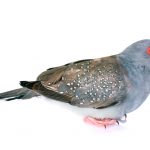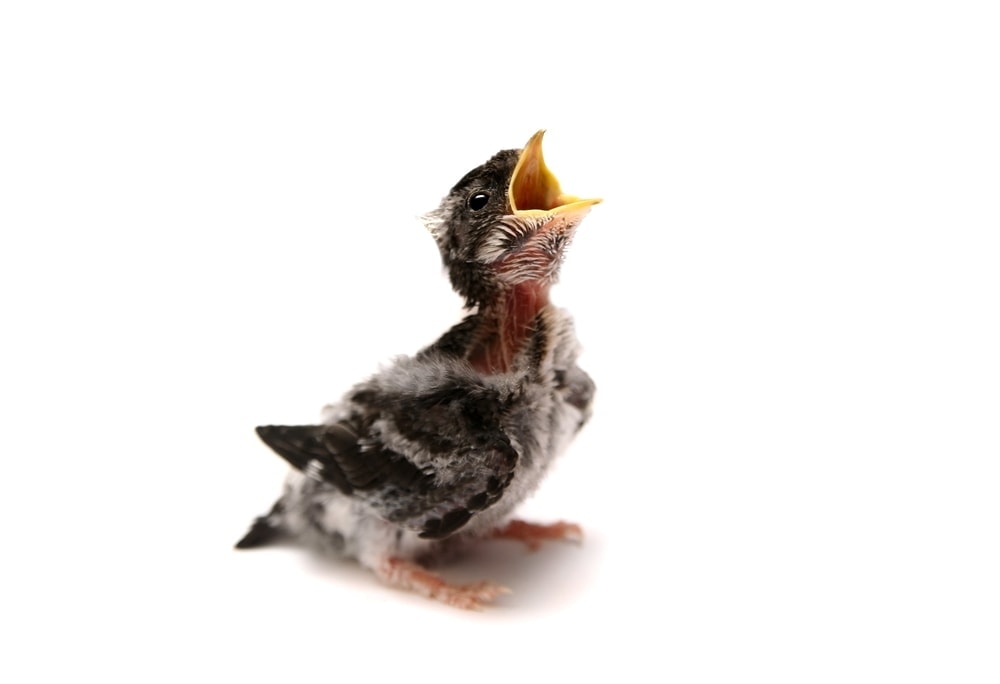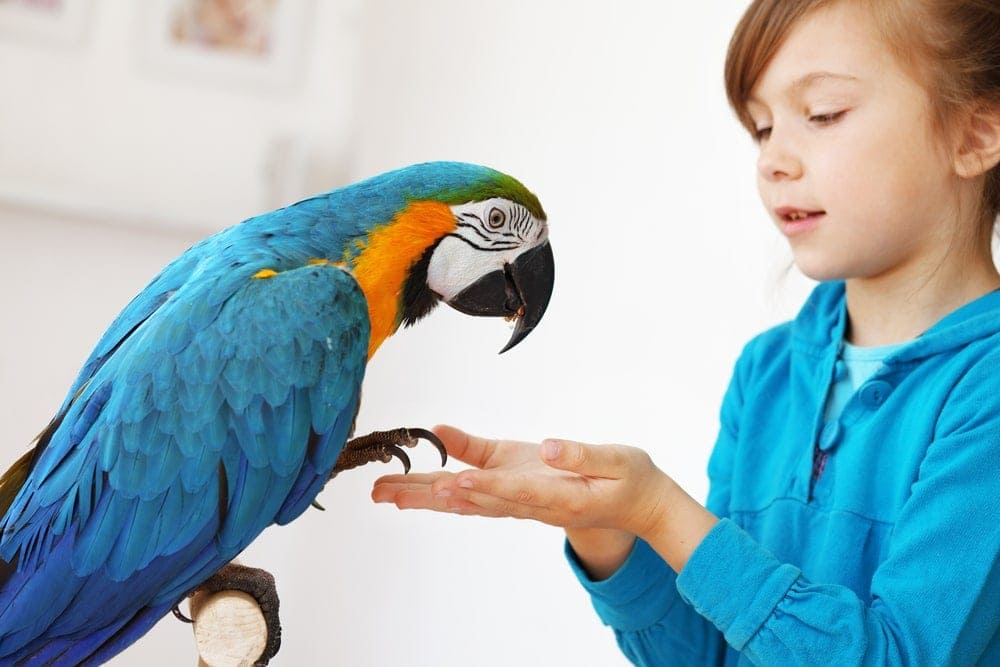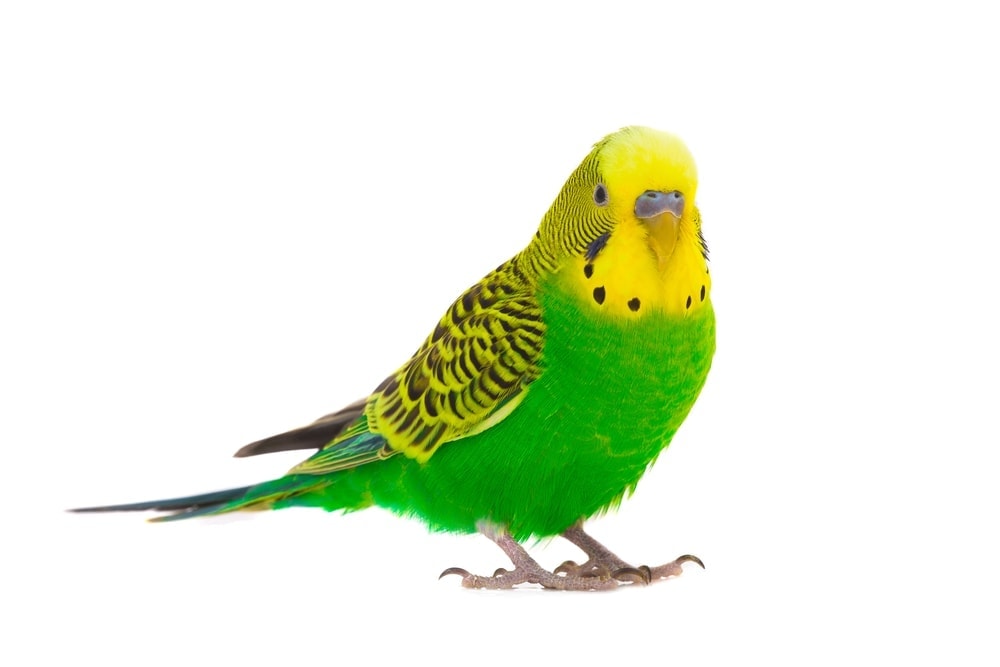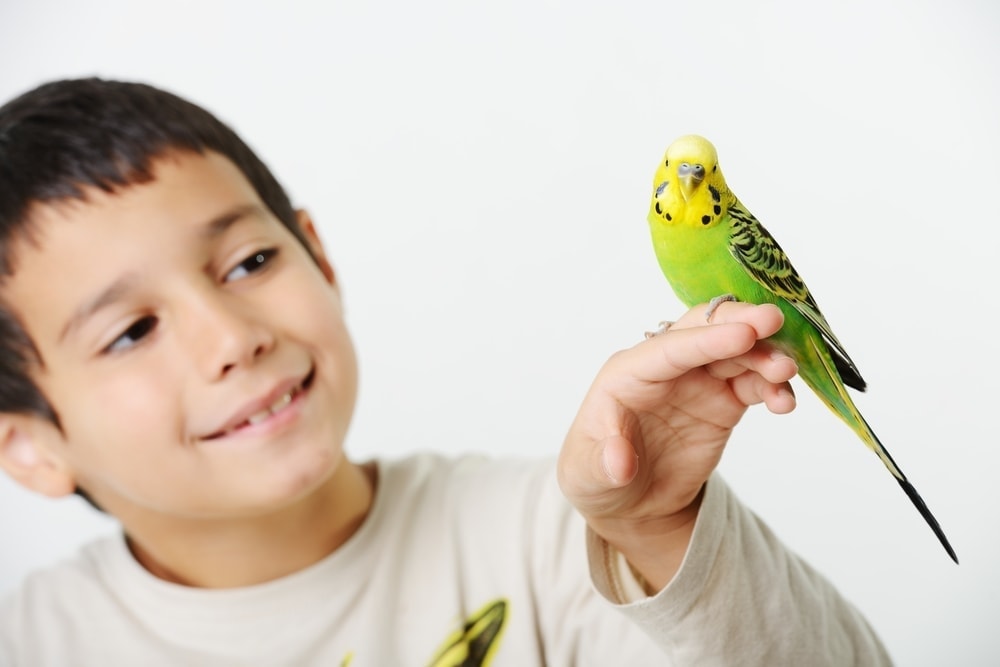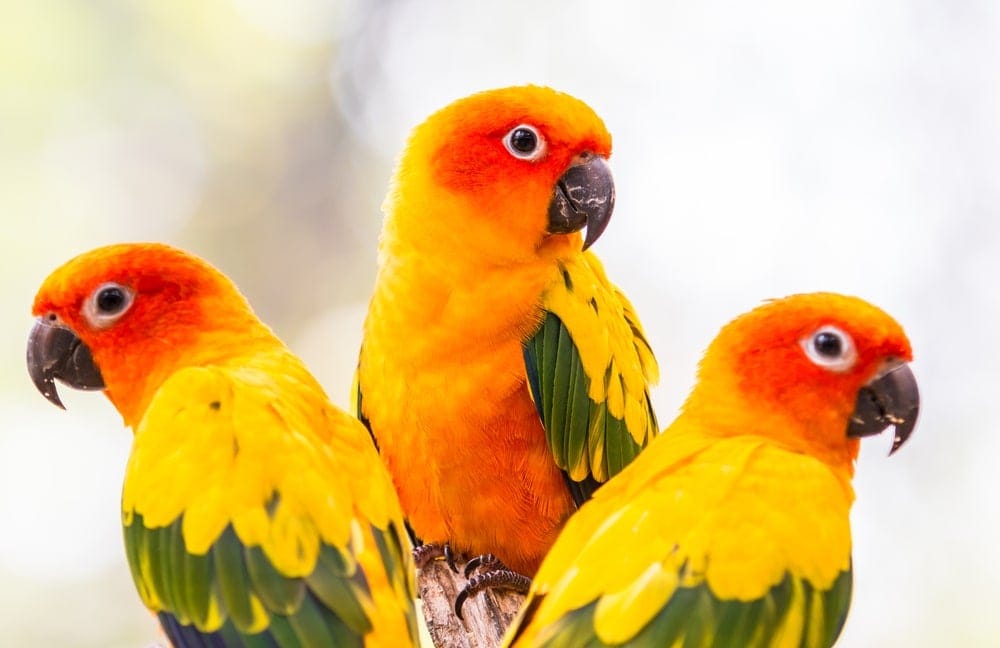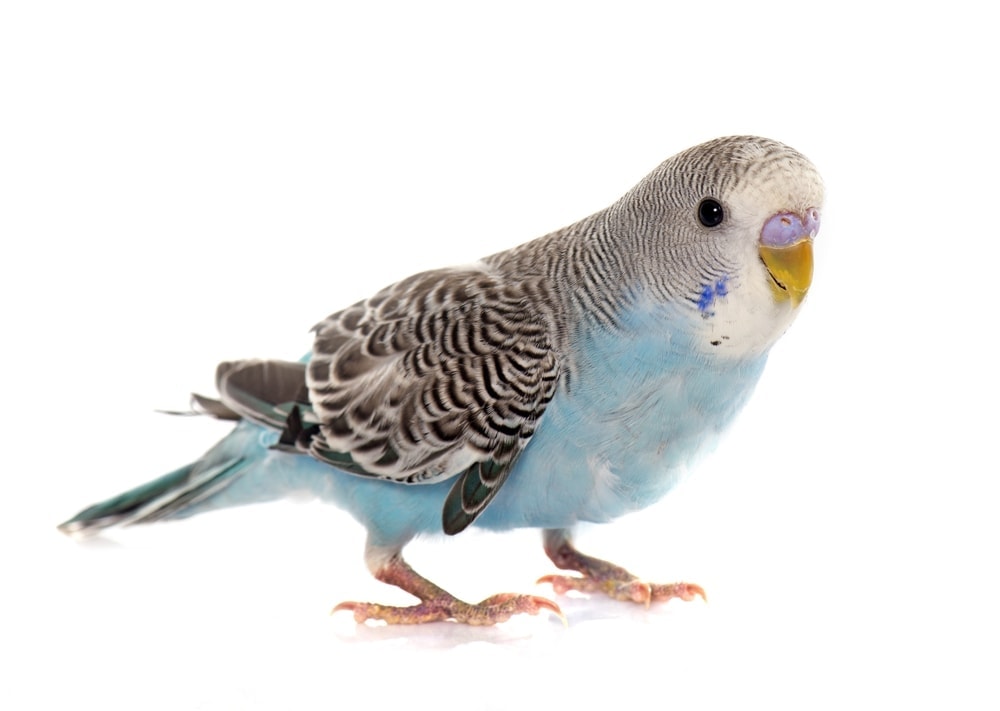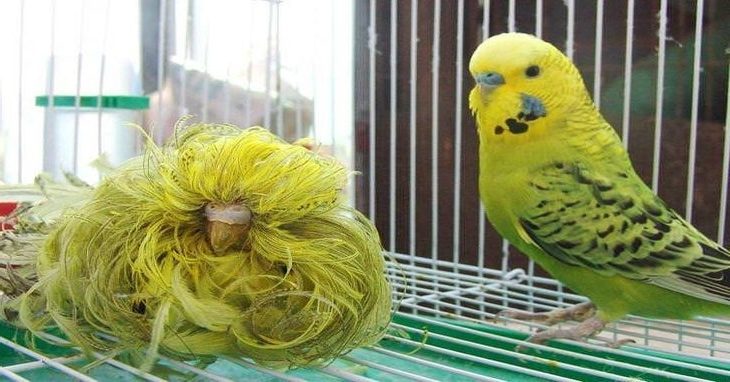There are over 200 different canary breeds, each of which has their own unique look.
These birds are generally pleasant and make for good pets to have around the house.
Appearance
The domestic canary can grow up to 8 inches with a weight of under one ounce. Many of these birds have one solid color, though it depends on the specific breed. These are generally small birds that are fairly easy to keep as pets.
Canary Lifespan
Most canaries live for about 10 years if they are properly taken care of. This is something else that can vary a bit depending on the breed.
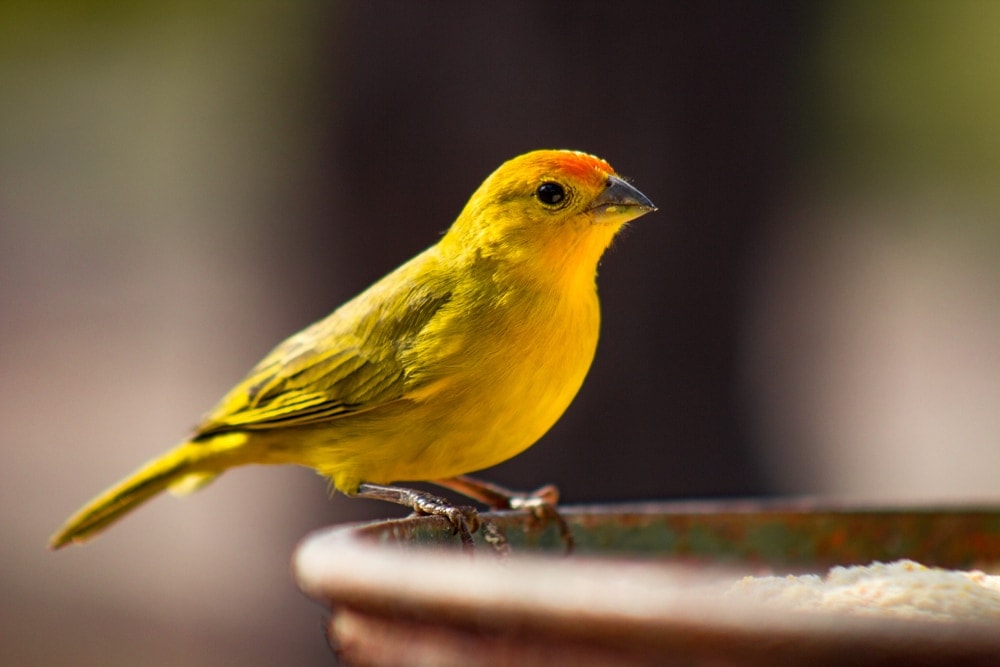
Types of Canaries
There are lots of different types of canaries, including:
- red factor canary: This particular breed is completely red, as the name suggests. It can live up to 10 years and grows to 5.5 inches at full maturity. These birds are bred for their aesthetic and not so much their singing abilities. This is an example of a “Color Canary”.
- Harz Roller: The Harz Roller is completely yellow and comes from Germany. It was bred in the mountains and grow up to 5 inches with a lifespan of up to 12 years. This bird is a “Song Canary”, due to its beautiful and elaborate songs.
- Australian Plainhead: This particular dove breed was created through very selective breeding. You can only find these birds in Australia if you are looking for them in the wild.
The Canary’s Personality
The average canary is a bit on the shy side, and they aren’t big fans of being handled. There are some of these birds that might allow you to hold them for a short period of time before getting restless. It is best to simply enjoy these birds from a distance.
These birds can be a real joy to simply watch in their cage, though this may not appeal to everyone. They often like to interact with their owners while inside their cage. Depending on the specific breed you get, you can expect yours to make all sorts of beautiful sounds.
This is definitely a good bird for beginners. If you have never owned a bird before, this is a pretty good overall choice.
You will need to spend a decent amount of time around your bird to provide it with adequate socialization. These birds may not particularly like being handled, but they do need to be around their owners on a regular basis.
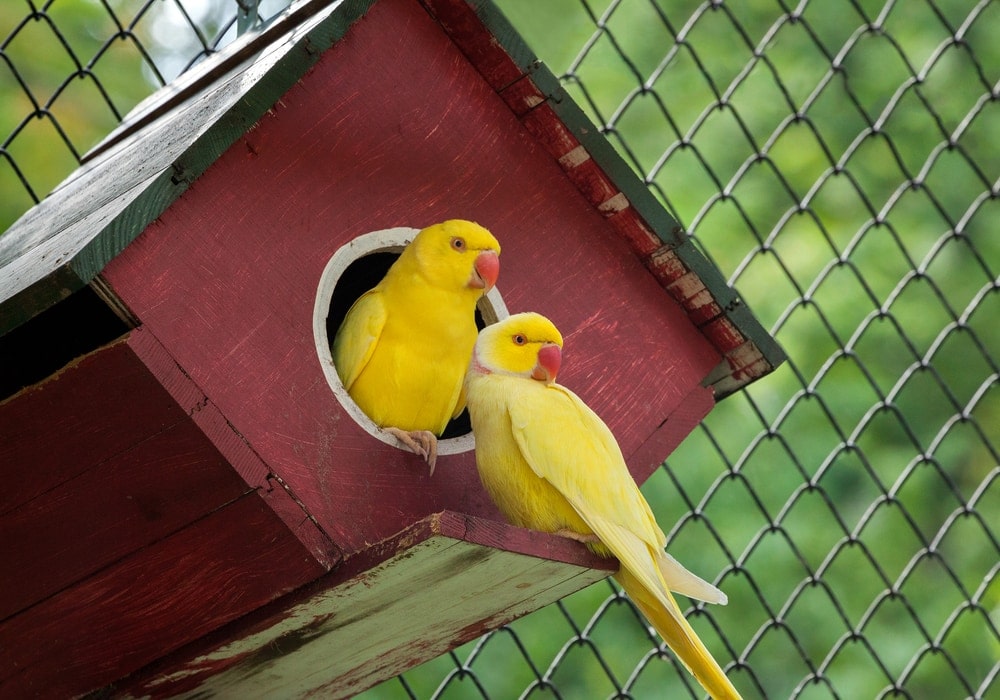
Natural Habitat
The natural habitat of the canary depends heavily on the specific breed. Some of these birds are found only in Australia, while others can be observed in the wild throughout North America. Many of these birds are also found in the Canary Islands, hence the name. They tend to stay above 1,500 meters elevation.
Canary Care Guide
1. Canary Diet
You will want to feed your canary a steady diet of mostly pellets that are specially formulated for these birds. You can also give them fortified seeds, fruit, and certain vegetables in moderation.
There are certain foods that you should never give a canary, including avocado, chocolate, fruit seeds, alcohol, and caffeine.
Make sure that your bird always has access to fresh food and water. If it doesn’t eat the fruit or vegetables you give it within a few hours, you should throw it away. Any treats that you give your bird should not make up more than ten percent of its overall diet.
2. Environment
The cage that you put your canary in should measure at least 18 by 14 by 18 inches with metal bars that are no more than 3/8” apart. This will provide your bird with a comfortable and safe home.
You’ll also want to put in perches that measure at least a few inches long. These perches will allow your bird to get enough exercise and keep its nails trimmed. This can even help with preventing arthritis, which can affect birds later on in life.
Keep in mind that canaries prefer to be in the company of their own kind. You should at least think about keeping a pair of these birds together. This will give your bird a companion to keep it company when nobody else is around.
Make sure that you have some toys in your canary’s cage at all times as well. None of the toys you put in should have lead paint, as it can do a lot of harm to your bird. When any of the perches or toys start to wear out, it is important that you promptly replace them.
3. Common Health Problems
These birds tend to have problems with lice and feather mites. This usually manifests in the form of scratching, feather picking, and general restlessness. Canaries can also develop Avian pox, which comes in the form of lesions in the mouth and scabs on the eyes.
If you notice any wheezing, coughing, swollen eyes, loss of appetite, or beak swelling with your bird, you need to get it looked at right away.
4. Grooming
Make certain that your canary has a bowl just for bathing in its cage. You may also mist it with water from a spray bottle from time to time.
Canary Price
You could pay anywhere from $25 to over $150 for a canary. These birds tend to be fairly cheap in general.
Conclusion
- Canaries are friendly birds but do not typically like being handled, at least not very an extended period of time.
- There are over 200 breeds and three main types of canaries for you to choose from.
- Many of these birds emit beautifully elaborate songs.
- It is important that your canary’s enclosure gives them plenty of room to fly around.
- You need to make a point of spending time around your bird on a daily basis to satisfy their need for social stimulation.
- These birds can develop problems with feather mites and lice, so it is important that you watch out for the signs.
- A water bowl in your canary’s cage will allow it to bathe and clean itself when necessary.


